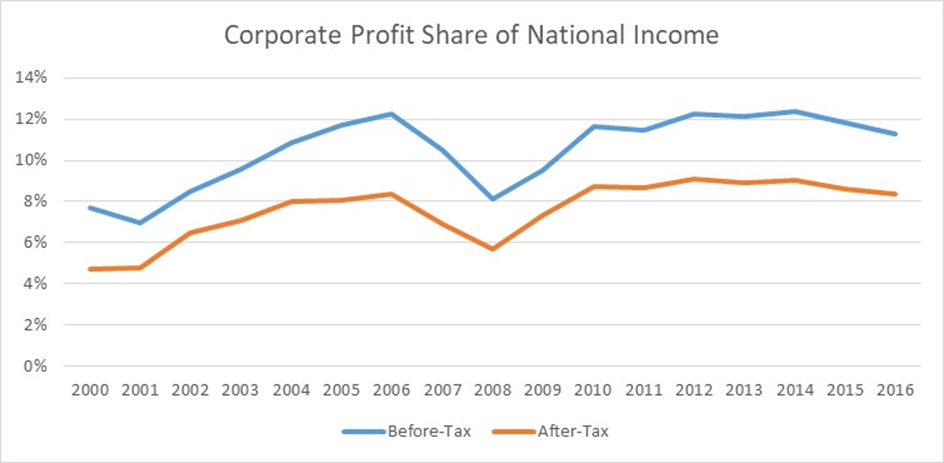From Dean Baker That’s the implication of this CNBC piece that claims that hiring is down because businesses can’t find qualified workers. If this is really the problem, then the solution, as everyone learns in intro economics, is to raise wages. For some reason, CEOs apparently can’t seem to figure this one out, since wage growth remains very modest in spite of this alleged shortage of qualified workers. Businesses should be well-positioned to absorb higher wages since their profits have soared over the last two decades. In the years from 1980 to 2000, the beneficiaries of upward redistribution were higher paid workers like CEOs, Wall Street-types, and highly paid professionals like doctors and dentists. Since 2000, there has been a substantial shift from wages to profits, as the
Topics:
Dean Baker considers the following as important: Uncategorized
This could be interesting, too:
tom writes The Ukraine war and Europe’s deepening march of folly
Stavros Mavroudeas writes CfP of Marxist Macroeconomic Modelling workgroup – 18th WAPE Forum, Istanbul August 6-8, 2025
Lars Pålsson Syll writes The pretence-of-knowledge syndrome
Dean Baker writes Crypto and Donald Trump’s strategic baseball card reserve
from Dean Baker
That’s the implication of this CNBC piece that claims that hiring is down because businesses can’t find qualified workers. If this is really the problem, then the solution, as everyone learns in intro economics, is to raise wages. For some reason, CEOs apparently can’t seem to figure this one out, since wage growth remains very modest in spite of this alleged shortage of qualified workers.
Businesses should be well-positioned to absorb higher wages since their profits have soared over the last two decades. In the years from 1980 to 2000, the beneficiaries of upward redistribution were higher paid workers like CEOs, Wall Street-types, and highly paid professionals like doctors and dentists. Since 2000, there has been a substantial shift from wages to profits, as the after-tax profit share of national income has nearly doubled, as shown below.

Source: Bureau of Economic Analysis and author’s calculations.
The profit shares include one-third of the foreign profits of US corporations based on new research showing that this is really just profit shifting to evade taxes. If after-tax profit shares were back at their 2000 level, it would imply another $600 billion a year in wage income or almost $4,000 per worker in additional wages.
